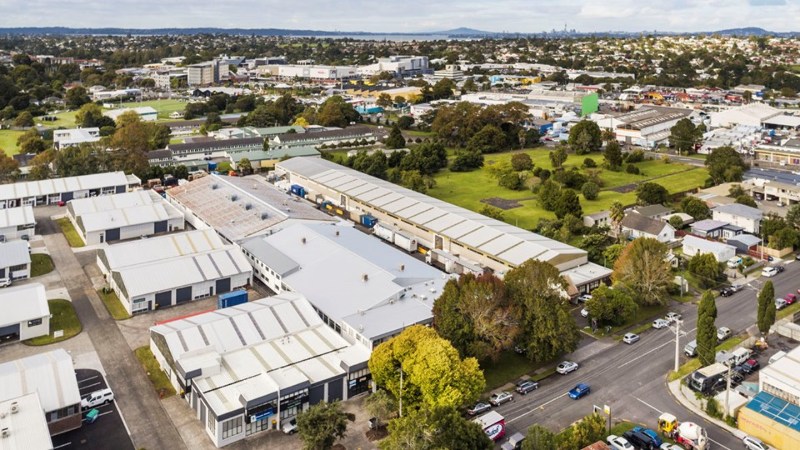The value of storage building consents was up 25.8% in the year to March compared to the March 2020 year.
Consents for work totalling $967.3 million included 427 new storage buildings, with a combined floor area of 748,683m².
In addition a number of existing buildings were consented for alterations costing a total of more than $103 million.
A raft of factories have also been consented for construction. Work totalling $971 million across 438 new industrial buildings is up 23.5% compared to March last year and is at a record high.
The floor area covered by the new buildings sits at 406,911m². Alterations consented for existing buildings totalled $182.8 million.
Vacancies low
The resilience in the industrial sector is illustrated by vacancy rates which have remained at low levels.
Although Auckland region’s vacancy rate increased from 2.1% to 2.2% over six months to February 2021, the latest figures show a slowing in the rate of increase.
This reflects the rapid rebound in tenant demand since the end of 2020’s lockdowns.
Colliers International industrial director Greg Goldfinch says given the strength of the fundamentals supporting the sector and the positive forecasts for the economy, it is increasingly likely that vacancy has now peaked.
“Land values have surged reflecting the shortage of industrially zoned greenfield sites across the region. Average land values across the region reached $910/m² in this year’s first quarter, an increase of about 22% over the last year.
“Additional impetus for land value rises has been provided by demand from the datacentre sector.”
Goldfinch says investor confidence in Auckland’s industrial sector has rebounded strongly over recent months.
Results from the first quarter’s investor confidence survey show the sector to have registered a net positive score of 76%.
“This confidence has translated into heightened competition for assets driving yield compression with average prime yields tightening from 4.5% to 4.1% over the six months to March.“
In Wellington the industrial vacancy rate sits at 2.4%. Tenant demand within the sector is being strongly underpinned by growth within a number of business sectors.
E-commerce is experiencing significant expansion fuelling demand for logistics warehousing and last-mile facilities.
The increase in competition for a limited number of assets has resulted in an increase in capital values and total returns.
In Wellington, yields have also tracked down with prime properties commanding yields of between 4.25% and 6%.
Limited number of assets
Bayleys industrial specialist Scott Campbell says investors are competing for a limited inventory of assets.
“Among those battling to secure industrial property are fresh investors to the sector, on the back of diminishing returns from other asset classes and higher compliance thresholds in the residential investment market.”
Campbell says in some areas of Auckland, constraints on industrial land are becoming increasingly evident with the tight fundamentals unparalleled anywhere else in the country.
“A shortage of land for future industrial development Auckland-wide is adding to the pressure on existing stock in a sector which seems to have bottomless demand.
“The west Auckland area is incredibly constrained and there is a finite amount of prospective land for industrial development down the track,” he says.
“Any existing stock in that area is seeing intense interest when it comes to the market forcing many investors and owner-occupiers to broaden their search parameters.”
Independent economist Tony Alexander’s latest Business Survey report shows the industrial building sector could be hit by construction issues.
“Everyone is at capacity, so prices are increasing with building contractors picking and choosing what jobs they want while charging triple for jobs they don’t want,” are some of the comments in the survey says Alexander.
Other comments allude to “trade stores stockpiling materials for a select few customers meaning it’s a fight for the remnants”.



 Search
Search
